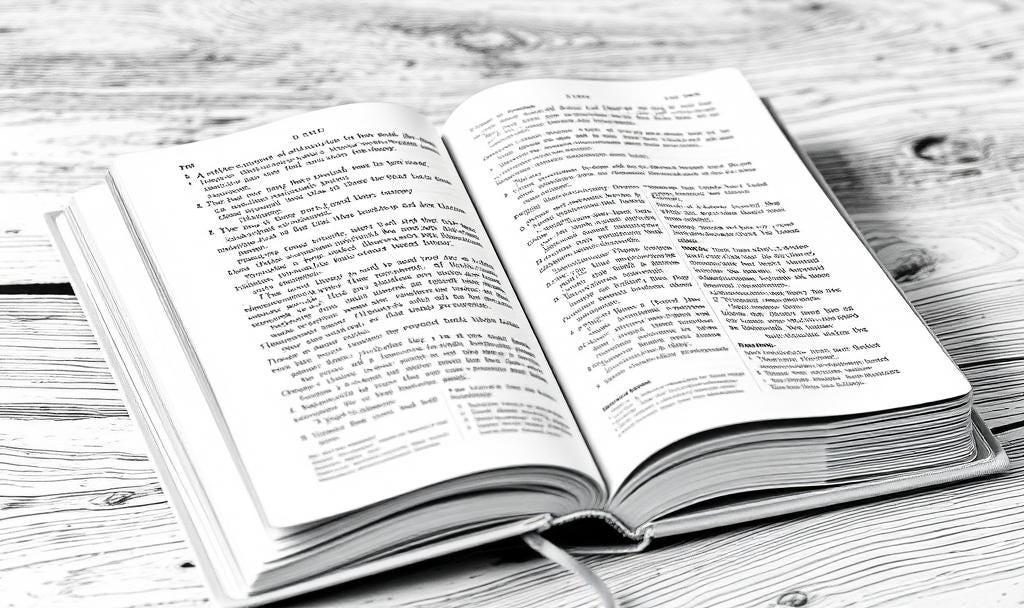Johnson's Dictionary: A Mini-Appreciation
Without it, we couldn't communicate with the ghosts
Picture a world teetering on the edge of linguistic chaos, where words morph faster than a politician’s promises, and the grand tomes of Shakespeare, Milton, and the King James Bible risk fading into gibberish.
This was England in the 1700s, a place where reading had caught fire among the gentry and the middling sorts, where people flipped pages in smoky coffeehouses, and the London Chronicle, at the urging of one Samuel Johnson, birthed the book review.
But with this literary frenzy came a problem: English, that unruly beast, was galloping wild. As Johnson biographer John Wain put it, English “grew so fast, putting on muscle so swiftly and in such unforeseeable places, that it was both exciting and unpredictable.” Spelling had become a free-for-all. Grammatical correctness, a quaint notion.
Enter the curmudgeons and the dreamers, fretting that their beloved Shakespeare might soon be as indecipherable as a Druid’s rune.
Jonathan Swift yearned for a grand academy, a Frenchified bureaucracy to chain the language to propriety.
Johnson scoffed at such straitjackets. He knew English was a living thing, not a corpse to be pinned under glass. Norms, he’d allow. Laws? Never.
And so, in 1746, a cabal of flush booksellers, smelling profit, tossed Johnson a king’s ransom: 1,575 pounds, over $250,000 in today’s dollars. Their charge: tame the language, not with a whip, but with a dictionary, a speed bump to slow but not cripple, much less suffocate, the runaway tongue.
Johnson took the offer and set up shop in a hulking house. He rounded up six unusual assistants: men literate enough to parse a sentence but desperate enough to toil for pennies.
For nine years, he labored, a literary Sisyphus, sifting through the muck of English.
The result?
A Dictionary of the English Language (1755), a triumph that lined the booksellers’ pockets and crowned Johnson the high priest of letters. The young Robert Browning, that poet-to-be, devoured it cover to cover, as if it were holy writ.
Before, people called Johnson “the old elephant”; now, he was “Dictionary Johnson,” a man etched in the firmament of words.
Without Johnson’s Dictionary, Jane Austen’s quips, the Declaration of Independence’s fire, and Shakespeare’s tempests would be Beowulfed to us, almost entirely indecipherable, except to philologists and other masochists.
With Johnson, we can still appreciate an eighteenth-century character like Elizabeth Bennet.




